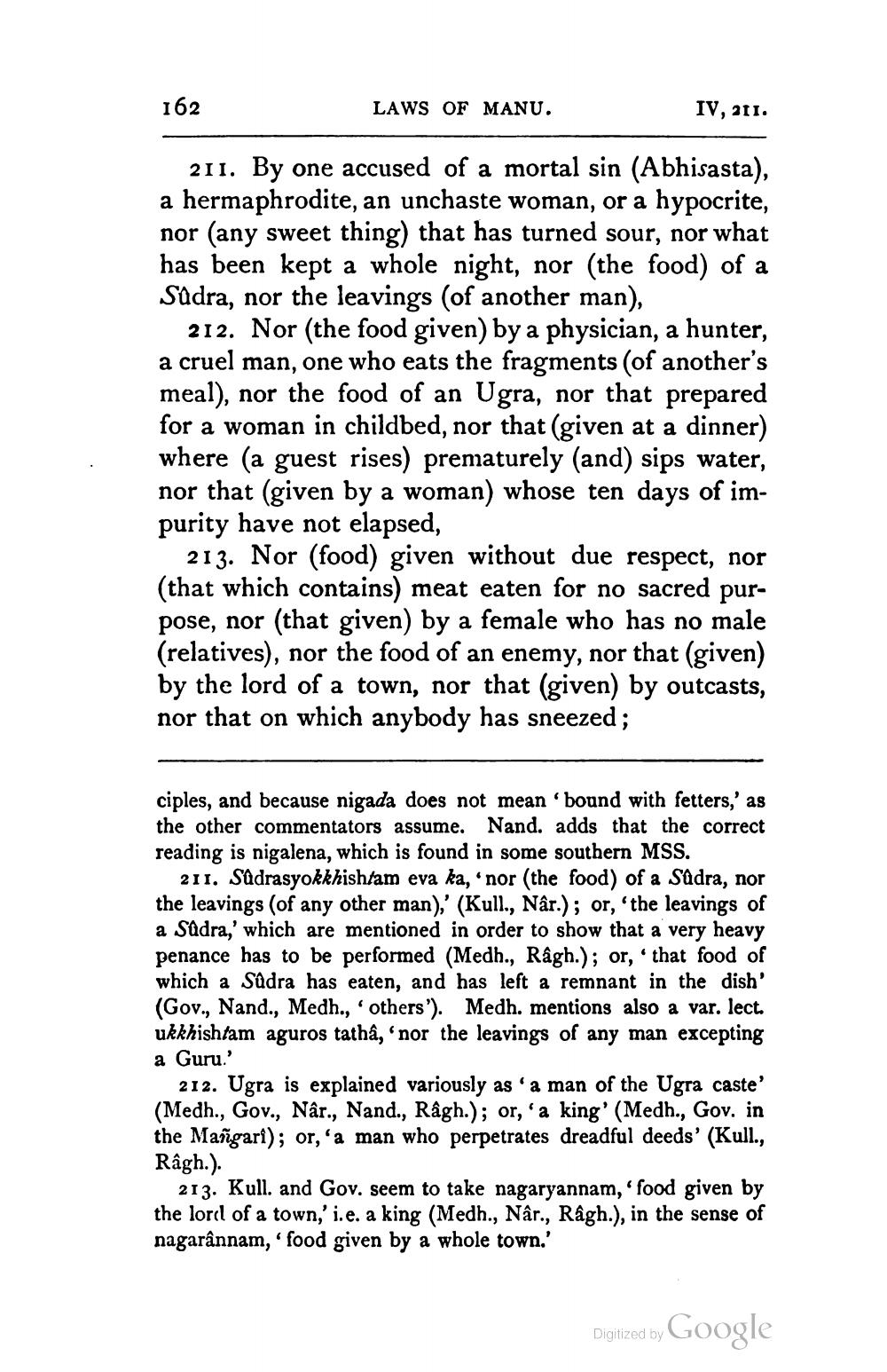________________
162
LAWS OF MANU.
IV, 211.
211. By one accused of a mortal sin (Abhisasta), a hermaphrodite, an unchaste woman, or a hypocrite, nor (any sweet thing) that has turned sour, nor what has been kept a whole night, nor (the food) of a Sudra, nor the leavings (of another man),
212. Nor (the food given) by a physician, a hunter, a cruel man, one who eats the fragments (of another's meal), nor the food of an Ugra, nor that prepared for a woman in childbed, nor that (given at a dinner) where (a guest rises) prematurely (and) sips water, nor that (given by a woman) whose ten days of impurity have not elapsed,
213. Nor (food) given without due respect, nor (that which contains) meat eaten for no sacred purpose, nor (that given) by a female who has no male (relatives), nor the food of an enemy, nor that (given) by the lord of a town, nor that (given) by outcasts, nor that on which anybody has sneezed;
ciples, and because nigada does not mean 'bound with fetters,' as the other commentators assume. Nand. adds that the correct reading is nigalena, which is found in some southern MSS.
211. Sûdrasyokkhishtam eva ka, 'nor (the food) of a Sûdra, nor the leavings (of any other man),' (Kull., Nâr.); or, 'the leavings of a Sûdra,' which are mentioned in order to show that a very heavy penance has to be performed (Medh., Râgh.); or, that food of which a Sûdra has eaten, and has left a remnant in the dish' (Gov., Nand., Medh., ' others'). Medh. mentions also a var. lect. ukkhishtam aguros tathâ, 'nor the leavings of any man excepting a Guru.'
212. Ugra is explained variously as a man of the Ugra caste' (Medh., Gov., Nâr., Nand., Râgh.); or, 'a king' (Medh., Gov. in the Mangari); or, 'a man who perpetrates dreadful deeds' (Kull., Râgh.).
213. Kull. and Gov. seem to take nagaryannam, 'food given by the lord of a town,' i. e. a king (Medh., Nâr., Râgh.), in the sense of nagarânnam, 'food given by a whole town.'
Digitized by Google




